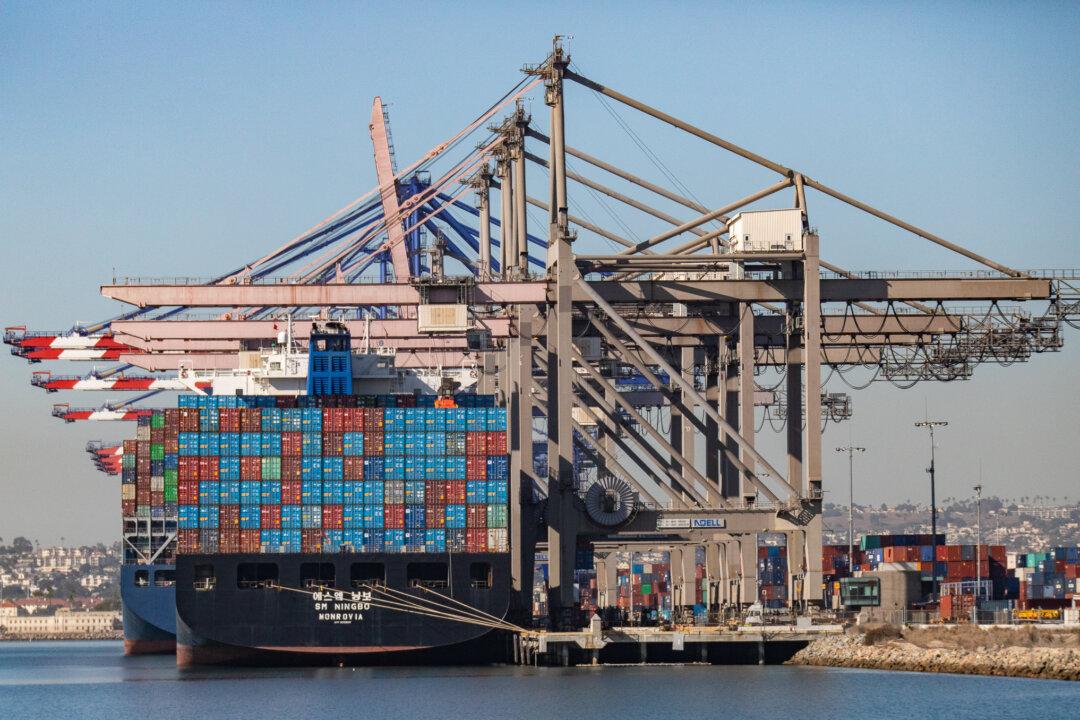Cargo ships and crews rushed to unload and move containers at the Los Angeles and Long Beach ports in the face of new fines which went into effect Nov. 1.
A record number of cargo ships continue to flood the ports as they waited to offload their goods, according to the Marine Exchange of Southern California.





